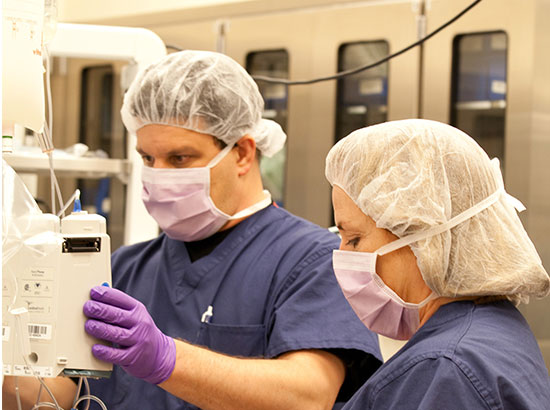Did you know each day 20 people die while waiting for a transplant? And that more than 75 lives can be saved and healed by one donor? When you say “yes” to organ, eye and tissue donation you can greatly enhance or even save the life of someone in need. Organ donation gives the gift of life by providing one organ, multiple organs or a partial organ to one or more transplant recipients. Advances in technology contribute to the growing list of organs and tissues that can be successfully transplanted. There are six major organs that can be transplanted to up to eight recipients after death.
Organs that can be donated
For patients and families awaiting transplant, organ and tissue donation can mean the difference between life and death. One donor can donate and save up to eight lives by donating organs after death. The organs that can be donated include the heart, intestines, kidneys, liver, lungs and the pancreas.
- Heart: As the hardest-working muscle in the body, the heart beats 60-80 times every minute and is responsible for pumping blood to every area. Conditions that make a heart transplant necessary are cardiomyopathy, heart failure, myocarditis and heart disease.
- Kidneys: Kidneys are the most needed and most commonly transplanted organ. Kidneys are responsible for filtering waste and excess water from the blood and balancing the body’s fluids. Those on dialysis due to suffering from high blood pressure, diabetes or cystic kidney disease may be candidates for a kidney transplant.
- Liver: The liver has more than 500 known functions in the human body, including producing bile that aids in digestion, breaking down harmful substances in the blood and storing vitamins, sugars and fats. Because of the vast number of functions, donating a liver can save people from chronic liver infections like hepatitis or damage from drugs or alcohol. A donated liver can sometimes be split between two recipients, which means one donor could potentially save the lives of two people.
- Lungs: The lungs are tasked with a very important function in the body: extracting oxygen and expelling carbon dioxide. Conditions that often require a lung transplant include cystic fibrosis, pulmonary hypertension, emphysema and pulmonary edema. Similar to the liver, one donor can save the lives of two people by donating their lungs.
- Pancreas: People need their pancreas to help regulate insulin. The pancreas produces insulin, which is a hormone that helps the body use glucose (sugar) for energy and enzymes that break down fat, protein and carbohydrates during digestion. It’s common for the pancreas to be transplanted with a kidney because diabetes often affects both organs.
- Intestines: Your intestines are in charge of digesting food and absorbing nutrients back into the bloodstream. If you have twisted or blocked intestines or short-gut syndrome, you could be in need of an intestine transplant.
Living organ donors can donate
Living donation is another incredibly selfless way you can help save the life of someone waiting for an organ transplant. It gives others a second chance at life. The list of organs that can be transplanted from a living person to another is smaller. Living donors can donate one of their kidneys, or a portion of their lung, liver, pancreas or intestine. Living kidney donation is the most common living donation and helps save thousands of lives each year. Nationally, a total of 5,725 living donor transplants were performed in 2020.
Why you should consider organ donation
Every nine minutes another person is added to the waiting list. Organ and tissue donation gives hope and life to patients awaiting transplant. Simply put, it’s a lifesaving gift to consider registering for organ donation. While you may never see the impact of this personal decision first-hand, it’s a legacy that will be seen and felt by your friends, family, community and even perfect strangers. As an organ and tissue donor, you can leave a legacy of love and healing.
A healthy heartbeat. The chance to walk again. The gift of sight. Donation empowers transplant patients to take back life’s most important moments. By registering as an organ or tissue donor, you can bring hope to patients and families who are holding out for a miracle. Sign up for the donor registry and increase the chance that patients waiting will get the transplants they need to survive.



